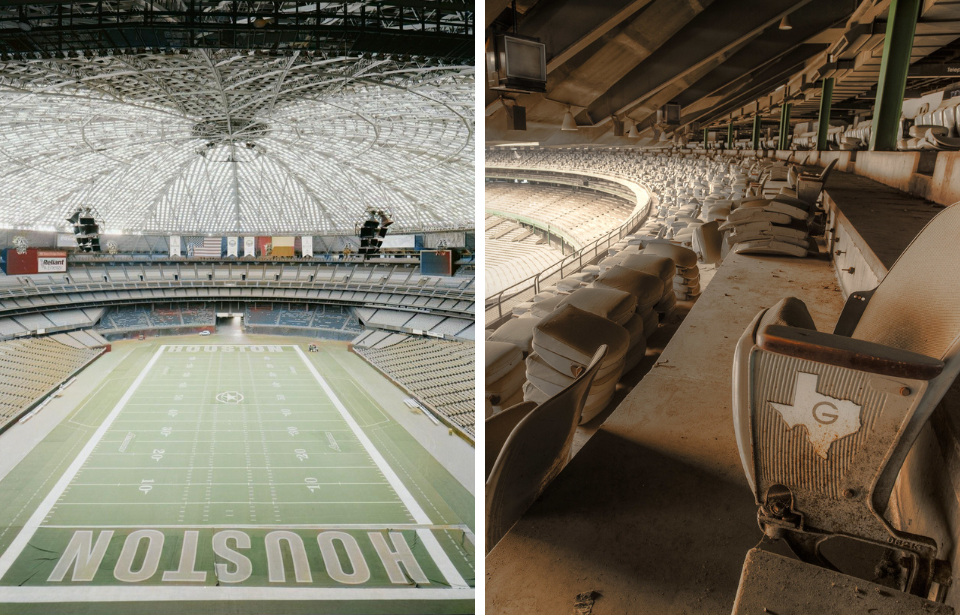The Houston Astrodome, in Texas, was the first of its kind: a top-of-the-line sports arena and the first in the world to include a dome. Sixty years after it opened to the public, the site lies abandoned, and its fate remains in limbo. What will happen to this piece of sports history? Keep clicking through to learn more about this forgotten treasure!
Houston gets its own Major League Baseball (MLB) team
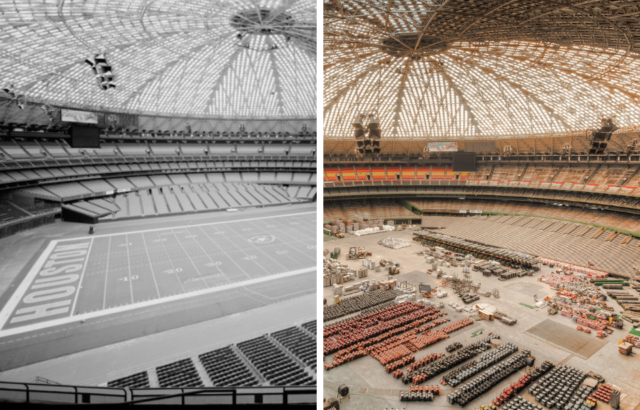
In 1960, Major League Baseball (MLB) expanded to Houston, Texas, following the addition of the Colt .45s (later renamed the Astros). The only problem with having a Texas-based baseball team was the extreme heat and humidity in the summer months, which could get up to 97 degrees and put spectator attendance at risk.
The MLB granted Houston the new team anyway, as long as the city fulfilled its promise to construct a covered stadium, to protect both players and fans from the oppressive weather. Ray Hofheinz, the owner of the new Houston baseball team, said the design of the Astrodome was inspired by the Roman Colosseum, which he’d visited on a trip to Italy.
Building the ‘Eighth Wonder of the World’
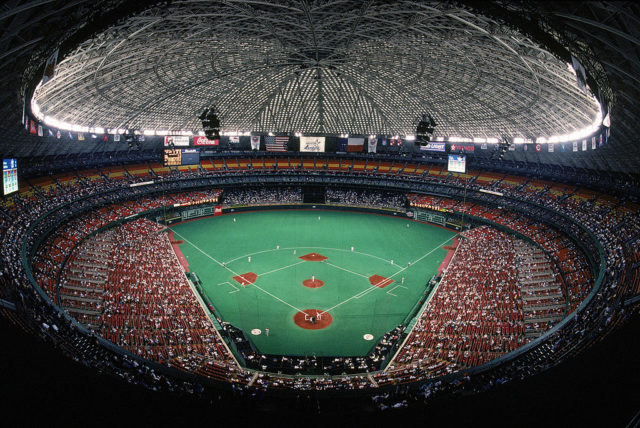
Building the Houston Astrodome cost a whopping $35 million – over $300 million in today’s currency! It stood at 18 stories tall, covered 9.5 acres and had enough space to seat 66,000 spectators. It was completed in 1964, six months ahead of schedule.
The first baseball game to occur at the stadium was a sold-out meeting between the Houston Astros and the New York Yankees. US President Lyndon B. Johnson was in attendance, along with 47,000 others who marveled at the futuristic-looking building, which the press dubbed the “Eighth Wonder of the World.”
Several historic firsts occurred at the Houston Astrodome
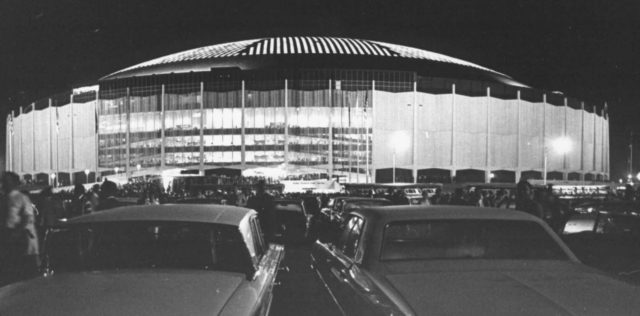
The Houston Astrodome was also home to a number of historic firsts. It was the first sports arena to use artificial turf – or what we now know as “AstroTurf” – which was named after the Astrodome. The aforementioned game between the Astros and the Yankees on opening night was also the first official indoor baseball game in history.
The dome witnessed another major historical moment in 1973, when it served as the setting for the famed tennis match between Billie Jean King and Bobby Riggs, dubbed the “Battle of the Sexes.”
Live music performances were held at the Houston Astrodome
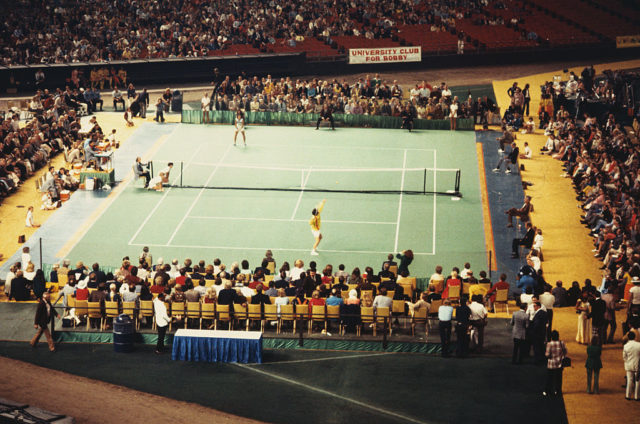
Judy Garland, Elvis Presley and Madonna were just some of the legendary musical acts who played at the Houston Astrodome, but it was 1990s Tejanos superstar Selena who drew the largest crowd in the stadium’s history; over 66,746 fans packed into the Astrodome to see Selena and her band, Los Dinos, perform in February 1995.
The performance was Selena’s last televised concert before she was fatally shot on March 31, 1995.
An unanticipated decline
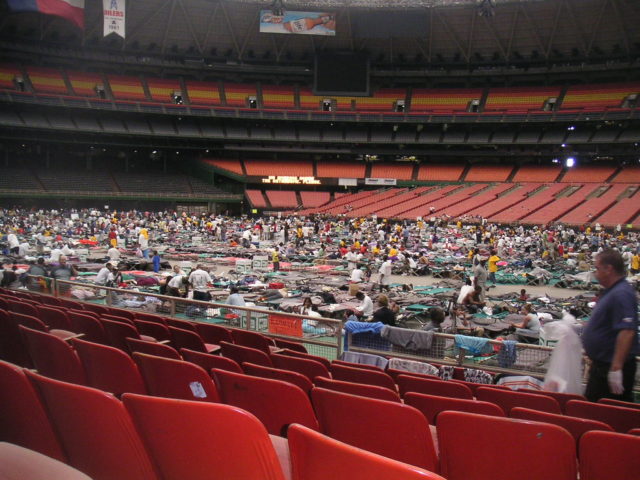
By the 1990s, the Houston Astrodome was struggling to stay relevant as televised sports games grew in popularity. The upkeep of such a large building was also expensive, and the field was notoriously derelict.
New enclosed stadiums, like Enron Field and Reliant Stadium (now NRG Stadium), opened not far from the Astrodome, making it look like an ancient fortress, compared to the new and shiny designs. However, one final crowd would file into the structure in 2005 – but for an entirely different reason.
Hurricane Katrina
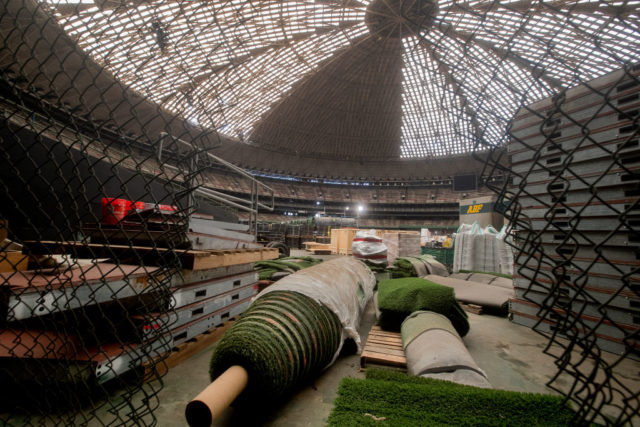
When Hurricane Katrina decimated the American South in late August 2005, it was decided that 25,000 evacuees from New Orleans, Louisiana would be relocated to the Houston Astrodome. Refugees stayed there until mid-September, before being relocated to apartments and other venues in the area.
Two years later, part of the Astrodome building was demolished. The following year, it was shut down after failing to comply with local building codes. Now, only maintenance workers and security guards are allowed inside what was once the shining jewel in Houston’s crown.
What’s next for the Houston Astrodome?
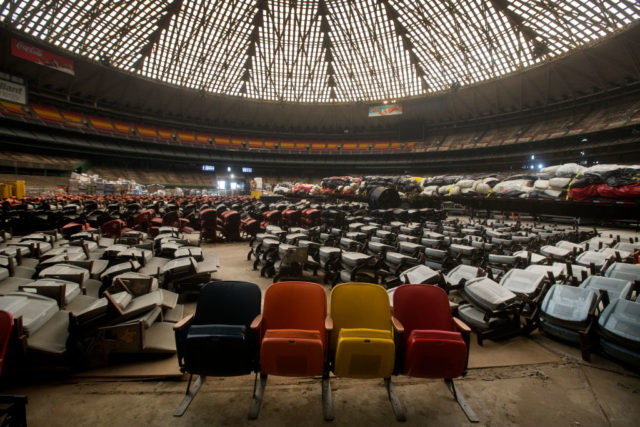
Several refurbishment proposals have come and gone since the Houston Astrodome’s closure. Leading up to the 2012 Summer Olympics, the stadium was put forward as a potential venue if the US Olympic Committee selected Houston as its bid. Ultimately, New York City was put forth to the International Olympic Committee, with London, United Kingdom chosen to host the games.
Plans to convert the Astrodome into a luxury hotel and movie studio were both rejected. A comprehensive plan was proposed to turn the stadium into a state-of-the-art convention facility and event center, with a whopping price tag of $200 million in repairs and upgrades. Ultimately, locals voted against the costly renovation project.
Another idea to turn the Astrodome into an indoor city park was also shot down.
Designated a State Antiquities Landmark
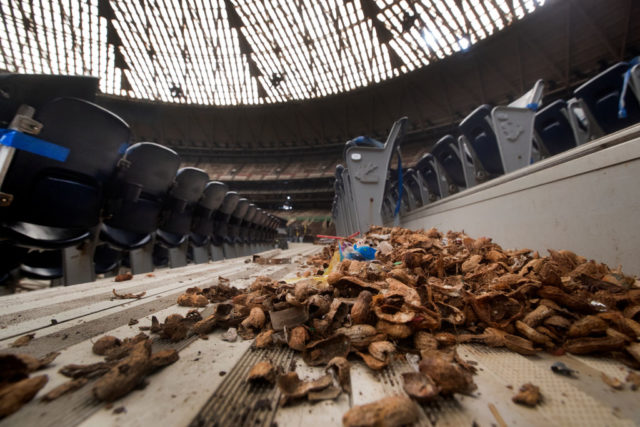
More from us: Miami Marine Stadium: The World’s First Water-Sport Stadium Now Lies in Shambles
In January 2017, the Texas Historical Commission voted unanimously to designate the Houston Astrodome a State Antiquities Landmark, to protect it from demolition. A $105 million renovation plan was approved in 2018 and was set to be completed in 2020. However, it was put on hold in 2019.
No one knows if or when the plan will be carried out. As of 2022, no new plans have been made for the Astrodome.
